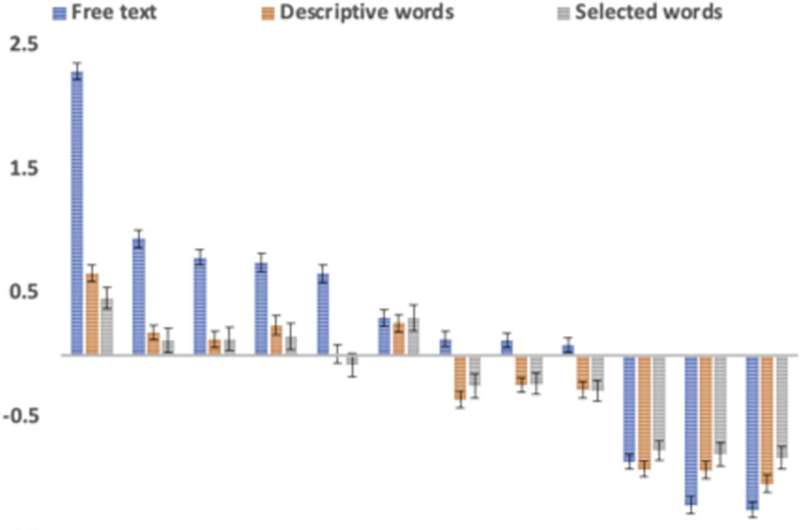This article has been reviewed according to Science X's editorial process and policies. Editors have highlighted the following attributes while ensuring the content's credibility:
fact-checked
peer-reviewed publication
trusted source
proofread
AI could improve mental health care by helping doctors analyze patients' answers

Patients are often asked to rate their feelings using a rating scale, when talking to psychologists or doctors about their mental health. This is currently how depression and anxiety are diagnosed. However, a new study from Lund University in Sweden shows that allowing patients to describe their experience using their own words—is potentially viewed as more precise and preferred by the patients. The Lund researchers have developed an AI-tool that could help doctors analyze their patients' answers.
The study, published in PLOS ONE, shows that clinicians and patients differ somewhat, as clinics often prefer rating scales when diagnosing a patient (e.g. Little interest in doing things: not at all, sometimes, often, daily) whereas patients prefer free language (e.g. Describe your mental health).
The researchers surveyed a group of 150 patients with self-diagnosed depression or anxiety, posing the same questions to a control group of 150 other participants.
The responses indicate that using free language is especially important as it is seen as the natural way for people to communicate their feelings. This enables the patient to develop what is the most essential and to be understood. In particular, patients responded that language gives a more precise description of how they feel, which is not possible using rating scales. According to the patients, the only advantage of rating scales is that they are easier and faster to answer, but they lack the potential of a more individualized care.
AI has been shown to be more accurate in measuring emotions in language than rating scales are. In recent years, great progress has been made with natural language processing, so that depression and anxiety now can be assessed with high validity based on open-ended questions that are then analyzed with AI methods.
"Previously, we were limited to rating scales where patients themselves had to convert their feelings into numbers. Today this is not necessary as this assessment can be done by AI," explains Sverker Sikström, the psychology researcher who led the study.
Sikström has developed an AI product that enables patients to freely describe their mental health in texts, which are interpreted by an AI engine. The results are shown in decision support material that can then be used by psychologists and doctors. This product is unique as it asks direct open-ended questions to patients, and for example do not rely on large scale social media where much of previous work has been done.
"We have received a lot of interest in this from health care providers, given that we now have the technology to support patients individually, yet in an efficient manner," concludes Sverker Sikström.
More information: Sverker Sikström et al, Precise language responses versus easy rating scales—Comparing respondents' views with clinicians' belief of the respondent's views, PLOS ONE (2023). DOI: 10.1371/journal.pone.0267995



















